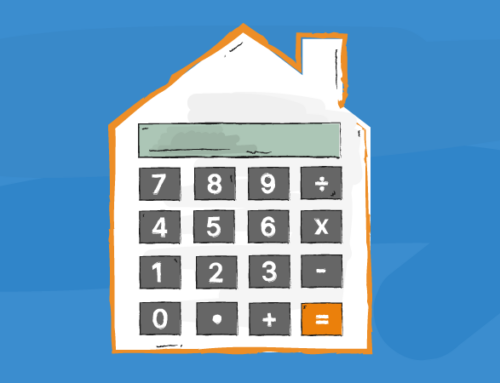Do I need landlord insurance?

Although it is not legally required, landlord insurance can help to provide financial protection for property owners renting out homes, flats, or other types of residential properties.
What is landlord insurance?
Landlord insurance can help protect rental properties against risks associated with letting. This can include cover for the building, contents provided for tenants, and landlord liabilities. It can also offer options for loss of rent or malicious damage caused by tenants, depending on the level of cover you choose.
Reasons you can benefit from landlord insurance
Letting out a property can come with a range of risks. Without insurance, you may be left financially responsible if something goes wrong.
Landlord insurance can help to cover the costs of unexpected incidents that are listed as an insured peril within the policy wording, which can include damage caused by tenants, liability claims, and repairs to the building.
Accidents and malicious damage by tenants
Even with reference checks and tenancy agreements in place, accidents can happen. Sometimes, damage may also be deliberate. Landlord insurance can help with protection against accidental or malicious damage caused by tenants during a tenancy.
Without this type of cover in place, the cost of repairs may need to be paid out of your own pocket.
Landlord liability
If a tenant or visitor is injured at your property, you could face a compensation claim. Landlord insurance can include property owners’ liability cover, which may help protect you if a claim is made against you. This cover can also contribute towards legal costs or compensation payouts, depending on the circumstances.
Property contents
If you let your property furnished, you may have provided items such as sofas or small appliances. Contents insurance can provide protection for the items you provide, helping with the cost of repair or replacement if they’re damaged by an insured event.
Replacing these items could become costly if you don’t have insurance, especially if you have multiple tenancies.
Property damage
Landlord insurance can offer cover for damage to the structure of your property caused by events such as fire, flood, storms, or subsidence. These risks can create significant repair work and costs, which is why building insurance is often a key part of landlord policies.
If your property becomes uninhabitable due to this type of damage, some policies may also offer options for loss of rent, depending on the cover selected.
Is landlord insurance a legal requirement?
Landlord insurance isn’t a legal requirement, but it’s often seen as a practical step if you’re renting out a property.
A standard home insurance policy typically won’t cover rental activities. That means you could be left without protection if something goes wrong, such as your tenant damaging your property.
If you have a buy-to-let mortgage, your lender will likely ask for landlord insurance as part of the terms. Even if it’s not required by law, it’s something most landlords choose to have in place.
What type of landlord insurance might I need?
Landlord insurance can include different types of cover, depending on what you want to protect. Here are some of the main options you can consider:
- Buildings cover: Can help protect the structure of the property, including walls, roof, floors, and permanent fixtures, against damage from events like fire, flood, or storms.
- Contents cover: If you let the property furnished, this can provide cover for items you’ve supplied, such as furniture, appliances, and soft furnishings.
- Landlord liability cover: Can offer protection if a tenant or visitor is injured at the property and holds you responsible, helping with legal costs or compensation.
- Loss of rent cover: Can offer support if your property becomes uninhabitable due to an insured event and you’re unable to collect rent while it’s being repaired.
- Alternative accommodation cover: Can help cover the cost of temporary accommodation for tenants if the property can’t be lived in following an insured incident.
- Accidental damage cover: Can offer protection against unintentional damage to the building or contents, caused by tenants or visitors during the tenancy.
Do I need landlord insurance if renting a room?
Under the UK’s Rent a Room Scheme, you can earn up to £7,500 a year tax-free by letting out a furnished room in your main home.
Even in this scenario, landlord insurance may still be worth considering. A standard home insurance policy might not cover damage or liability issues linked to a lodger.
Landlord insurance can offer protection for the contents you provide and may include liability cover in case a guest is injured in your home. It’s important to check your policy terms or speak to your insurer before renting out a room.
Do I need landlord insurance if renting to family?
Even when renting to family, problems like accidental damage or property issues can still arise. Landlord insurance can help provide protection for the building, contents, and liability risks, just as it would with any other tenant.
While it might feel less formal renting to a family member, having cover in place can offer added reassurance if something unexpected happens.
How much does landlord insurance cost?
The cost of landlord insurance can vary based on several factors, including:
- Property value: Higher-value properties may cost more to insure due to increased rebuild or repair costs.
- Location: Areas with higher crime rates or increased flood risk can lead to higher premiums.
- Tenant type: Letting to students or multiple tenants (HMO) can be seen as higher risk than a single-family let.
- Level of cover: Increasing the sum insured amount for buildings and contents cover can result in a higher cost for a policy.
- Claims history: Previous insurance claims linked to the property or landlord may result in higher premiums.
- Property type and condition: Older buildings or those with non-standard construction may cost more insure.
Why choose Just Landlords for landlord insurance?
At Just Landlords, we aim to support landlords with cover that reflects the real risks of letting. Our policy includes 40 covers as standard, helping to protect you against events such as property damage, theft, or loss of rent.
Our landlord insurance is rated 5 Star by Defaqto, so we can help you find suitable cover. We’re also rated ‘Excellent’ on Trustpilot, with over 1,000 reviews from landlords who’ve chosen us. If you’re looking to protect your rental property, get in touch for a quote and see how our cover could support you.
Policy limits and exclusions may apply – please see our landlord insurance policy wording for full terms and conditions.
FAQ
Please note that these Frequently Asked Questions are not a substitute for the policy wording. For full terms and conditions please see the policy documentation.
Do I need landlord insurance if I live in the property?
If you live in the property and also rent part of it out, you may still benefit from a landlord insurance policy. You’ll need to let your insurance provider know about your living arrangements, so they can help you find suitable cover.
Do I need landlord insurance for a flat?
Yes, if you’re letting out a flat, landlord insurance is typically more suitable than a standard home insurance policy. It’s designed to cover risks linked to renting, such as tenant damage or loss of rent.
Do I need landlord buildings insurance if I have landlord insurance?
Buildings insurance is usually included as part of a landlord insurance policy. With Just Landlords, buildings cover comes as standard, helping to protect the structure of your property against insured events.
The sole purpose of this article is to provide guidance on the issues covered. This article is not intended to give legal advice, and, accordingly, it should not be relied upon. It should not be regarded as a comprehensive statement of the law and/or market practice in this area. We make no claims as to the completeness or accuracy of the information contained herein or in the links which were live at the date of publication. You should not act upon (or should refrain from acting upon) information in this publication without first seeking specific legal and/or specialist advice. Arthur J. Gallagher Insurance Brokers Limited trading as Just Landlords accepts no liability for any inaccuracy, omission or mistake in this publication, nor will we be responsible for any loss which may be suffered as a result of any person relying on the information contained herein.




